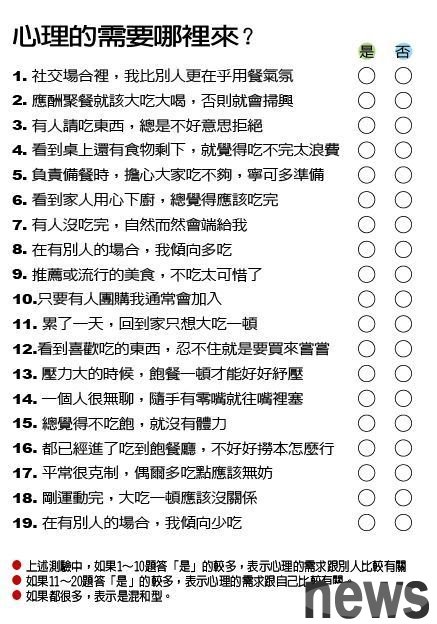
"Doctor, why can't I lose weight?"
Before starting, I wanted to deal with this most interesting question. Many people came to my door for a diagnosis, and this big question came to my head.
Wait a minute, you have a problem! In fact, most people don’t realize that this is simply an error problem, because what really should be asked is - why are you getting fat?
I once did a small survey and found something very interesting. I think that people who eat a lot usually don’t get fat; people who eat a lot often get fat. What’s more interesting is that people don’t measure their weight when they get fat, and they always weigh on their weight when they get thinner. This is not because they get thinner, but because they know that they are getting fat, so they don’t measure their weight.
In logic, there is only one reason for weight gain, which is that you eat more than the body needs. But, I clearly feel like I didn’t eat much? Yes, it's OK, the problem lies in the feeling.
People eat not only for the needs of their bodies, but more often, for the needs of their hearts. In short, the reason why the weight increases is that you eat more than the body needs, and the reason why you eat more than the body needs is because that is a psychological need.
Where is the need in the heart? Please use the form to do a small test.

For further analysis, psychological needs are simply divided into the following four categories: psychological needs under the iceberg
1. A sense of security is a sense of satisfaction. In an era of lack of food sources, eating is the most basic need. We worry about not being able to eat, so we will tend to stock up on a lot of food. Some people are satisfied with being self-righteous, as long as they are sure not to eat, they may eat snacks, and may not necessarily be aware of this kind of preventive eating; some people are both good at the world, and even prepare more for the people around them, and it is better if there are too many Ning Ke, it is better if they don’t need it.
This kind of security needs is mostly related to one's own anxiety. When you feel safe, you naturally don’t need to eat more extra food.
2. Sense of recognition
For most people, food is delicious. If everyone says it is delicious, they must go to the queue to have a delicious food. This is a manifestation of the sense of recognition. Relatively, rejection often implies negation, so rejection of food contains many digressions.
The happiness fat that everyone often calls refers to the fact that men and women often eat delicious food together after dating. In fact, it is a need for a sense of identity. Whether it is to eat all the food prepared by the other party or accompany the other party to eat what they love, it is a kind of identity.
3. Sense of responsibility
We have never thought that eating food is a responsibility since childhood, and the sense of responsibility is a sense of guilt. No matter the guilt caused by wasting food or the guilt caused by rejecting food, fat children who were accused when they were young were easily suffering from guilt.
In the process of reducing weight, if you want to eat but don’t dare to eat too much, or feel regret after eating for a long time, they are all familiar scenes, and there are many people who continue to fight between food and guilt. They say that when they are worn, they are all because we need to feel that we are a responsible person.
4. The sense of autonomy
Eating is a manifestation of autonomy. Being able to freely control the food you want to eat will bring great satisfaction. When people have to restrict their diet for certain reasons, they will inevitably feel that their autonomy is being slapped. Some people will tend to eat more food or go back to the extreme of not eating or eating too much.
It is very common to eat delicious food at night to relieve work pressure and create a sense of gaining power through food.
